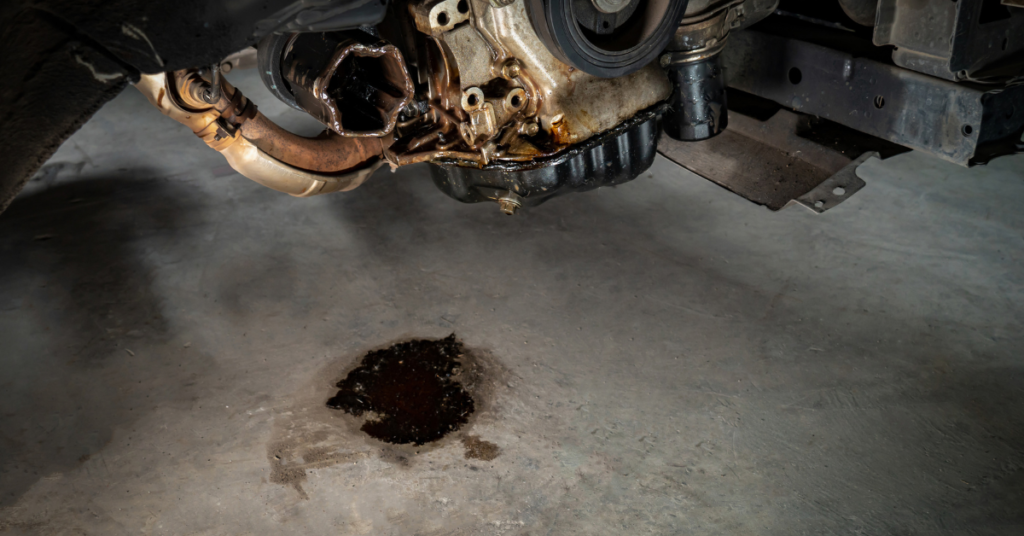
The P0305 BMW error code indicates a misfire in cylinder 5 of the engine. This error code is part of the OBD-II system, which is a standardized computer system in modern vehicles that helps diagnose and monitor various aspects of the engine’s performance.
When the OBD-II system detects a misfire, it triggers the P0305 code and illuminates the check engine light on the dashboard.
Contents
Understanding Misfires
Before diving into the details of the P0305 code, it’s important to understand what a misfire is. A misfire occurs when the fuel-air mixture in the combustion chamber fails to ignite properly.
This can happen due to various reasons, such as a problem with the ignition system, fuel delivery system, or engine mechanical issues.
When a misfire occurs, it affects the engine’s performance, fuel efficiency, and emissions. It can cause a rough idle, loss of power, and even engine vibrations.
Ignoring a misfire can lead to more serious issues, such as damage to the catalytic converter or other engine components.
Causes of P0305 BMW Misfires
Several factors can contribute to a misfire in cylinder 5 of a BMW. Here are the most common causes:
Ignition System Issues
Faulty spark plugs, ignition coils, or ignition wires can cause misfires. Over time, spark plugs can wear out, leading to weak sparks or no sparks at all.
Ignition coils and wires can also deteriorate, affecting the spark delivery to the cylinder. It is important to regularly inspect and replace these components as needed.
Fuel Delivery Issues

Problems with the fuel injectors or fuel pump can result in a misfire. Clogged or faulty fuel injectors may not deliver the required amount of fuel to the cylinder, causing a lean condition.
Similarly, a weak fuel pump can also lead to insufficient fuel supply.
Regularly testing the functionality of the fuel injectors and inspecting the fuel pump is crucial to prevent misfires.
Engine Mechanical Problems
Issues with the engine’s valves, pistons, or head gasket can cause misfires. For example, a burnt valve or a leaky head gasket can disrupt the proper combustion process in the cylinder, resulting in a misfire.
Performing a compression test can help identify any mechanical issues that may be causing the misfire.
Vacuum Leaks
Vacuum leaks can introduce excess air into the combustion chamber, disrupting the fuel-air mixture. Common sources of vacuum leaks include cracked or disconnected hoses, intake manifold gasket failure, or a faulty PCV valve.
Inspecting the vacuum hoses, intake manifold, and PCV valve for leaks or malfunctions is essential in preventing misfires.
Engine Control Module (ECM) Issues
A malfunctioning ECM can cause misfires by failing to properly control the ignition timing or fuel delivery. This can be due to software glitches, sensor failures, or wiring issues.
Thoroughly inspecting the ECM, including its software, sensors, and wiring connections, is necessary to ensure proper functionality.
Diagnosing P0305 Code
To diagnose the P0305 code in your BMW accurately, it’s recommended to follow these steps:
Scan the OBD-II System
Use a diagnostic scanner to retrieve the trouble codes stored in the vehicle’s OBD-II system. The P0305 code will indicate a misfire in cylinder 5. This initial step helps identify the specific issue and narrow down the potential causes.
Inspect Ignition System Components
Check the condition of the spark plugs, ignition coils, and ignition wires. Look for signs of wear, corrosion, or damage. Replace any faulty components as necessary.
It is important to use high-quality OEM or aftermarket components to ensure reliable ignition system performance.
Check Fuel Delivery System
Test the fuel injectors’ functionality and inspect the fuel pump for proper pressure and operation. Clean or replace clogged or faulty injectors and address any fuel pump issues.
Ensuring the fuel delivery system is in optimal condition is crucial for preventing misfires.
Inspect Engine Mechanical Components
Perform a compression test to evaluate the health of the engine’s valves, pistons, and head gasket. If any mechanical issues are found, repair or replace the affected components.
Regular maintenance and inspection of engine mechanical components can help prevent misfires.
Address Vacuum Leaks

Inspect the vacuum hoses, intake manifold, and PCV valve for leaks or malfunctions. Replace any damaged or faulty components and ensure a proper seal. Fixing vacuum leaks can significantly reduce the likelihood of misfires.
Check ECM Functionality
Perform a thorough inspection of the ECM, including its software, sensors, and wiring connections. If any issues are detected, consult a professional or consider reprogramming or replacing the ECM.
\Ensuring the proper functioning of the ECM is essential for preventing misfires.
Solving and Maintenance Tips
To minimize the chances of experiencing a misfire in your BMW, follow these preventative maintenance tips:
Regularly Service Your Vehicle
Follow the manufacturer’s recommended service intervals for oil changes, filter replacements, and overall vehicle maintenance. Regular servicing helps keep the engine in optimal condition and reduces the risk of misfires.
Use High-Quality Fuel
Refuel your BMW with high-quality gasoline that meets the recommended octane rating. Low-quality fuel can lead to carbon buildup and fuel system issues, increasing the likelihood of misfires.
Replace Ignition Components
Replace spark plugs, ignition coils, and ignition wires at the recommended intervals or if signs of wear are detected. High-quality OEM or aftermarket components are recommended to ensure reliable ignition system performance.
Keep the Intake System Clean
Regularly inspect and clean the intake system, including the air filter and throttle body. A clean intake system promotes proper airflow and fuel delivery, reducing the risk of misfires.
Monitor Engine Performance
Pay attention to any changes in engine performance, such as rough idling, reduced power, or unusual vibrations. Promptly address any issues to prevent further damage and potential misfires.
The shared experiences among different vehicles encountering this issue create a tapestry of knowledge that can prove invaluable in diagnosing and rectifying misfire problems across the automotive landscape.
By following these maintenance tips and promptly addressing any issues that arise, you can help prevent misfires and keep your BMW running smoothly.
FAQ
Q: What does the P0305 error code on a BMW indicate?
The P0305 error code indicates a misfire in cylinder 5 of the engine.
Q: What is a misfire and how does it affect the engine?
A misfire occurs when the fuel-air mixture in the combustion chamber fails to ignite properly. It can cause a rough idle, loss of power, engine vibrations, and affect fuel efficiency and emissions.
Q: What are the common causes of misfires in cylinder 5 of a BMW?
The common causes of misfires in cylinder 5 of a BMW are ignition system issues, fuel delivery issues, engine mechanical problems, vacuum leaks, and engine control module (ECM) issues.
Q: How can I diagnose the P0305 code in my BMW?
To diagnose the P0305 code in your BMW, you can scan the OBD-II system, inspect ignition system components, check the fuel delivery system, inspect engine mechanical components, address vacuum leaks, and check ECM functionality.



